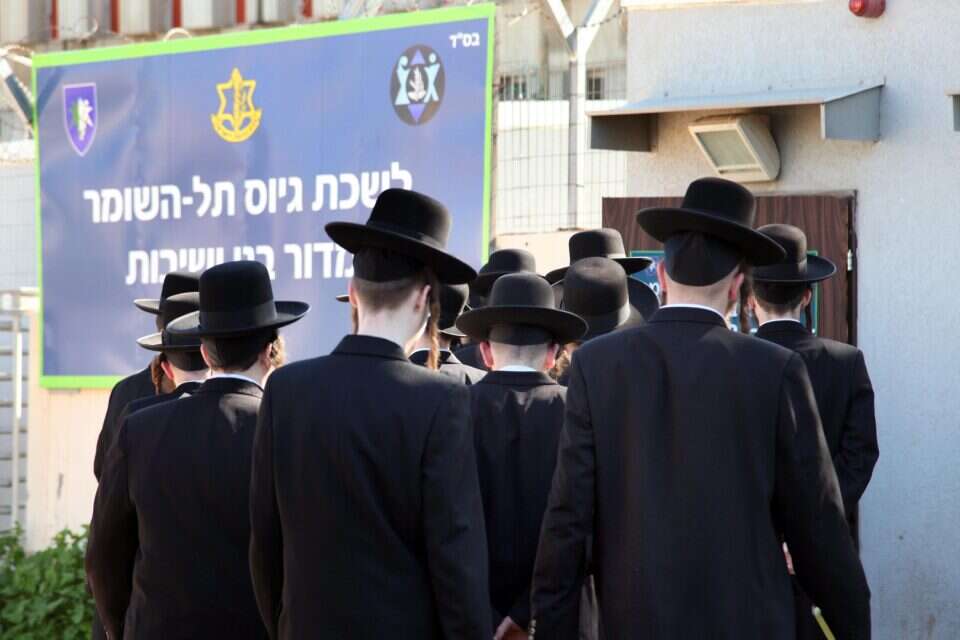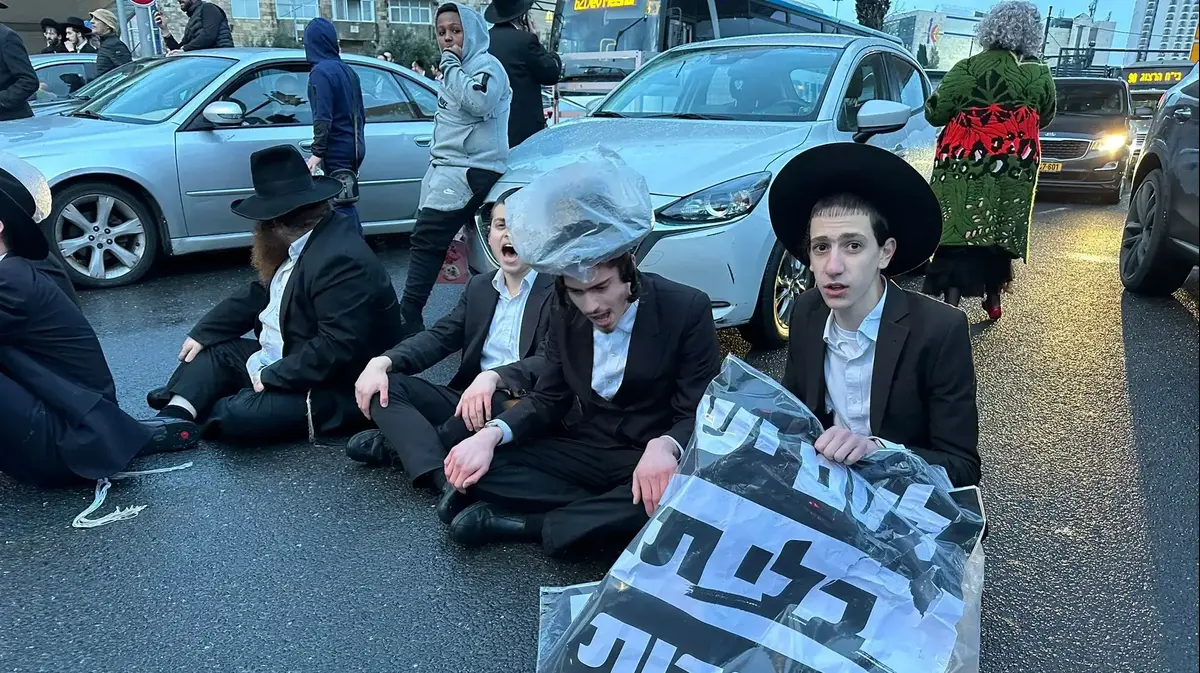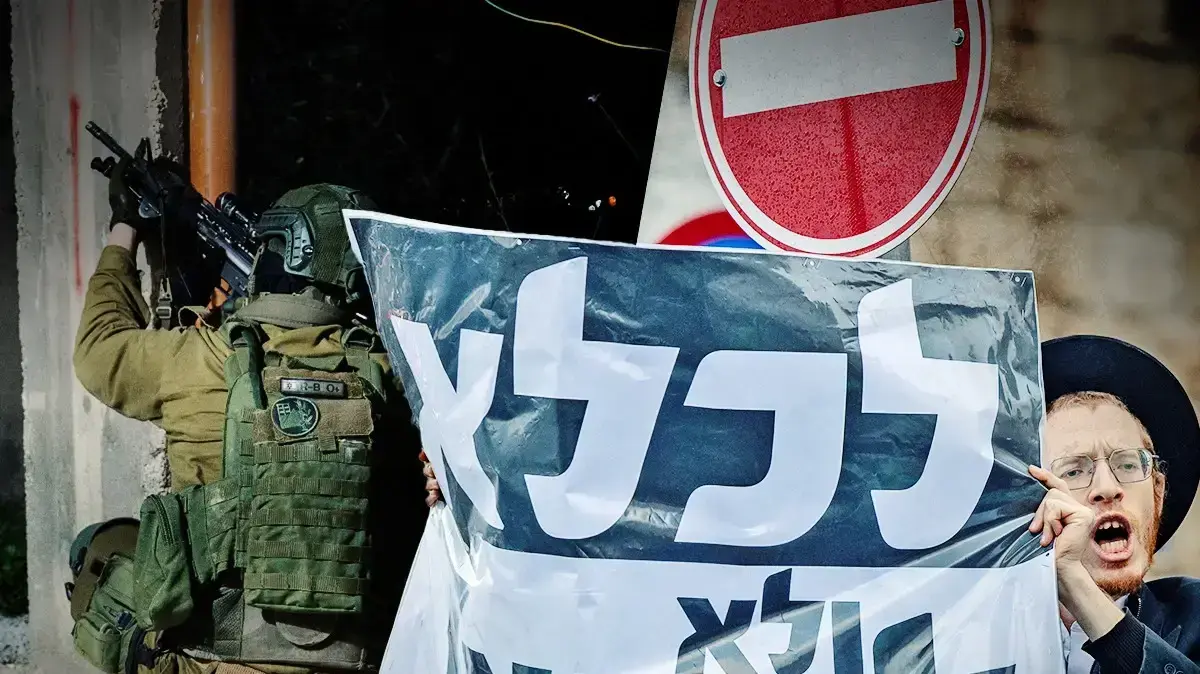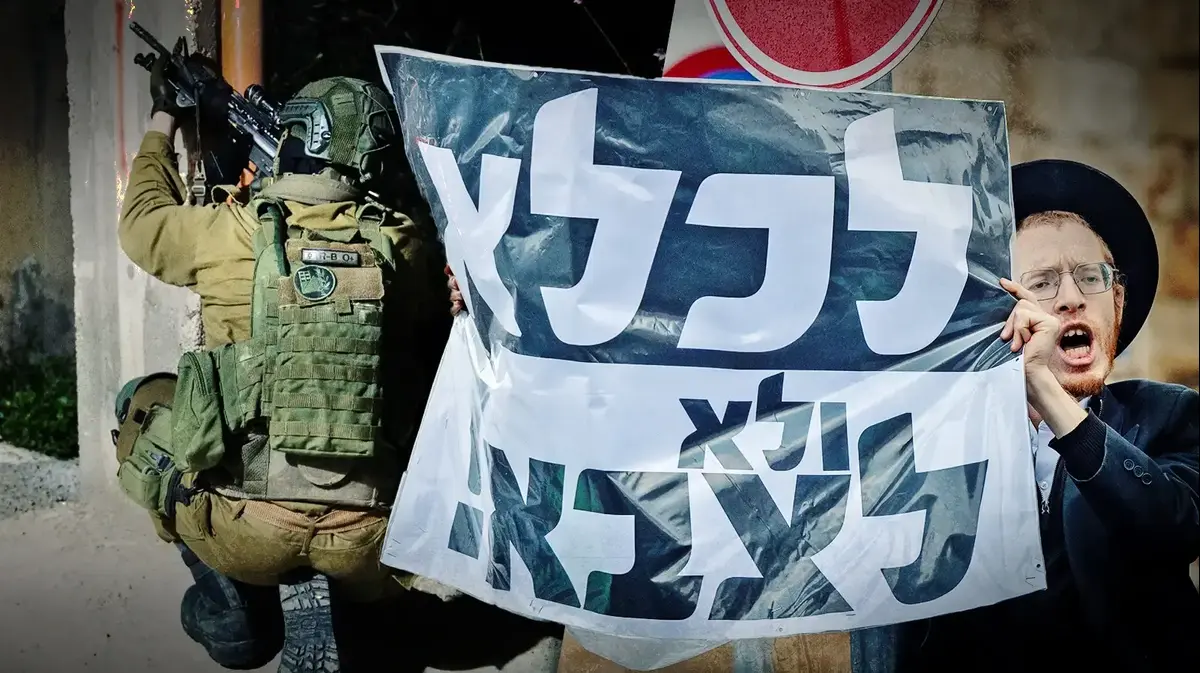These days, when the coalition is proposing a new law that would exempt the ultra-Orthodox from being drafted into the army, the issue of haredi recruitment is once again on the public agenda. Over the years, the ultra-Orthodox encounter with the IDF brought many public storms. From discriminatory draft laws to the High Court of Justice and ultra-Orthodox protests in response, all these have placed the issue of haredi recruitment into the IDF as a source of a central social divide at the heart of Israeli society.
On the one hand, general society is unwilling to accept the fact that part of the public has a duty to serve the state, and even endanger its life, while another side is exempt from this obligation; On the other hand, the ultra-Orthodox, who see significant and existential value in Torah study, see themselves as spiritually defending Israel, thereby fulfilling their social duty. At a time when Israeli society is more divided than ever, this significant issue could be resolved as the IDF recruits more ultra-Orthodox.
Demonstrations against non-recruitment of Haredim (archive), photo: Oren Ben Hakon
How do you do it? That's what many good people wrestled with. Proposals have gone up and down, laws have been enacted and rejected, and there is no solution so far – the ultra-Orthodox are enlisting at low rates, and general society is demanding a narrowing of the gap. Every year, about 1,200 Haredi boys enlist in the IDF (a significant portion of whom come out on the question) out of a yearbook of about 12,2022 boys, so that in terms of the five most relevant yearbooks for recruitment (2018-60), there are about 10,<> Haredi boys, of whom only about <>% enlisted.
There is potential: "Whoever is not in the yeshiva should go to the army"
"Studies we conducted show that it is possible to recruit another 30-15% of haredi youth," Inbar Giti, who was director of the service outline at the Defense Ministry, told Israel Hayom. "Our conclusions came from the understanding that high rates of them are registered as studying in yeshivas, but in practice they work in different jobs or just sit idle. This is a significant segment that has the potential to serve in the IDF.
Inbar Giti, who served as Team Leader of the Service Administration at the Ministry of Defense, Photo: Jonathan Shaul
"This potential is also from the Haredi point of view: the heads of the ultra-Orthodox yeshivas and the various senior officials, and even the politicians of the sector, will say, 'Whoever is not in the yeshiva should go to the army.' The way to reach the heart of this potential is through footwork, getting to know the population and creating as many attractive routes as possible for it. It exists in too minimal a form, and it needs to grow. I think that the ball in this matter is in Haredi society, and if the heads of institutions of dropout youth – and there are many of them in Haredi society – are more active and build programs with the army and national service, and actively direct the youth there, then the segment of haredi service can easily grow."
Today, the vast majority of haredi youth who enlist in the IDF do not come from the heart of the haredi mainstream, but rather are youths who, for one reason or another, did not fit into the yeshiva world and found themselves outside. This is indeed a significant share, but even if its potential has room to grow, it is still limited.
A new outline for haredi recruitment. Illustration, photo: GettyImages
They have come to the conclusion that before marriage there is nothing to talk about
"In the studies we conducted to see how to bring the ultra-Orthodox mainstream to serve in the IDF, we came to the conclusion that before marriage there is nothing to talk about with these guys," Gitti continues. "That's why we built an outline that appeals to those young people after they got married. We examined what most threatens the young ultra-Orthodox man serving in the IDF. We found that it involves uniforms, basic training, going through a chain of service, being in a military base where there are men and women. Then we checked whether the army could say that all these things are important, but that more important is the issue of integrating the ultra-Orthodox, and for this purpose they are willing to overcome this and exempt the Haredim from these parts of the service.
"These actions will lead young Haredim to look at their service as work in the civilian market. A situation has arisen in which the ultra-Orthodox guy serves, but in his sense and in his speech towards the community and towards himself, he is actually in a civilian software office.
Presenting an Israeli service alternative. Inbar Giti, Photo: Jonathan Shaul
"From the IDF's point of view, it gets very high-quality programmers who were sorted out of thousands who signed up for the program, and lets them do programming work from a civilian place that looks like offices, designed for these guys – a kind of incubator, but one whose job is to lower the walls and create trust. The concept we've built can be applied to many other roles."
In the end, the ultra-Orthodox boy who wants not to enlist in the IDF has ways to do so – from fictitious registration in a yeshiva to issuing a mental exemption. "I paid 1,400 shekels and had a mental exemption in hand," Ido (not his real name) tells us. "I was in a bit of a complicated period, after I didn't find myself in the yeshiva world and I didn't really see recruitment to the army as a possibility. Not for religious reasons, but because I thought it would get stuck in my development in life. I wanted to make money, so I ruled out the option of recruitment in advance." Such stories are common in Haredi society. Therefore, the way to bring the ultra-Orthodox to the army lies in establishing alternatives to life outside the framework.
"Outline addressing young people after they get married" Illustration, Photo: Yoav Ari Dudkevich
There are ways out: fictitious registration and mental exemptions
The IDF has tried over the years to build tracks that will bring the ultra-Orthodox to military service, but so far only about 10% of every year enlists. The failure, according to Gitti, lies in the army's inconsistency in the tracks it established. "The starting point of the outline must come from the understanding that it will continue for years and that it will have continuity," adds Gitti. "The significant factor in the situation we find ourselves in today is the lack of continuity, which is created every time a new politician comes along with a new agenda that raises the issue of recruitment in the public eye, which leads the ultra-Orthodox to close themselves off within themselves.
"The yearbooks are increasing every year, as is the number of recruits to the IDF. Therefore, numerically, the IDF does not need the ultra-Orthodox, but from a moral point of view, it needs them, because without Haredi society, the legitimacy of the People's Army erodes.
Missing an opportunity to become part of a more homogeneous society. Demonstration against Haredi recruitment (archive), photo: Coco
"There is a creeping trend over the years that the percentage of recruits from among the general population is declining, and when we researched the issue, what stood out most was the fact that these young people see that another population is exempt from conscription, and they say to themselves, 'Why should I serve while others my age do not serve?' This is how they find a way to avoid military service. This trend will expand as the ultra-Orthodox continue not to enlist, and then there is a real danger to the people's army."
One of the reasons why Haredi society today does not see IDF service as an option is the lack of community that surrounds recruits. Thus, these young people, who grew up in a certain community, find themselves not belonging to it and cope quite alone with the military world, which has secular characteristics that they are not familiar with.
Rabbi Jonathan Reis, founder of Hedvata, photo: Natan Moyal
"The way to bring ultra-Orthodox youth to the army must be through building bridges between them and the outside world," says Rabbi Jonathan Reis, founder of the Hedvata Yeshiva network. "You can't bring an ultra-Orthodox guy, who grew up all his life in his own unique world with certain nuances, to serve in the IDF without having a bridge. The state must take part in this and build more bridges in the form of ultra-Orthodox Seder yeshivas, which create a bridge for young Haredim between the world he knows and the outside world, where the army is also located.
The IDF does not know how to distinguish between service and identity
"The Seder yeshivas build communities for those young people who do not find themselves in the classic yeshiva world, that give them the backing they need on their way to the army. If the state develops more and more frameworks, it can address this cultural gap.
"Until now, the system dealt only with the technical procedures of how to bring the young ultra-Orthodox to the service, but not with building the envelope that would enable him to receive this service. Thus, many young people, who really had the potential to serve and build a good life path, found themselves switching jobs and earning minimum wage.
Haredi youths arrive at the recruitment office at the Tel Hashomer base (archive), photo: Coco
"Today I have graduates after technological service in the army who earn salaries of NIS 30,25-<>,<>, whose alternative, if this route were not for this route, would be to be on the street. They tell me that their friends are now being treated on welfare because they didn't find a solution in their teens. Therefore, we need to invest more in the world of high school settlement yeshivas, and the state needs to sponsor them, because in the end every institution has someone who takes care of it. Bnei Akiva has the religious, the yeshiva world has the ultra-Orthodox, and we, the ultra-Orthodox Seder yeshivas, are left orphans."
Eli Pelay, chairman of the Haredi Institute for Policy Research in Jerusalem, offers another explanation for why the IDF has not succeeded in bringing military service to the heart of the ultra-Orthodox mainstream: "The army does not come only to protect the security of the State of Israel, but it has another goal – to create a melting pot of cultures in Israeli society, and this is precisely the point at which the IDF loses the ultra-Orthodox. Because if you talk to the ultra-Orthodox about security, they can be great partners, but as soon as you talk to them about identity, they are not willing to participate in this game, and here the IDF does not know how to make the separation.
"The IDF does not make the separation." Eli Pelay, Photo: Oren Ben Hakon
So far, the conversation has been conducted in the language of the deaf
"There has never been a conversation with the rabbis who lead the ultra-Orthodox in which they said, 'Here are the security challenges facing the State of Israel and how we deal with them.' There was always a conversation – which I don't underestimate – about equality and serving the country. These are things that are not found in the haredi discourse, because the haredim see Torah study as a supreme value, and when the state comes and tells them, 'Close the books and go do other things,' it loses them, because on the moral level, in the eyes of the ultra-Orthodox, there is no more humiliating statement.
"She says that Torah study is irrelevant, but in the Haredi view, it is the most relevant, because in their view, the Jewish people have no future without Torah study. Therefore, the conversation has so far been conducted in the language of the deaf. When the system presents the ultra-Orthodox with the security demands of the State of Israel, while understanding how to preserve the identity of the young ultra-Orthodox, it will find interlocutors on the other side."
Wrong? We'll fix it! If you find a mistake in the article, please share with us








